Interview conducted by Divya Sharma. Note this interview has been edited for length and clarity.
Q. Tell me about your work with Lief
Broadly, I’ve always been interested in how we can affect behavior change, particularly when it comes to issues that are stigmatized, like mental health. People often feel shame around these issues, so how can we empower them to take positive action? Answering this question has been driving my work for the last 15 years.
More recently at Lief, I’ve been helping people understand how HRV biofeedback can help improve their mental health. I’ve been connecting with people in the community who are already doing adjacent work, like therapists, primary care providers, and health coaches, and helping them understand how our program can help the people they’re already working with. I also led our first clinical trial, which was published in Applied Psychophysiology and Biofeedback in 2021.
Q. What were some of the most interesting findings from that clinical trial?
Participants who did at least 3 minutes of HRV biofeedback a day (so, not a lot!) about 5 days a week, and had a call with a remote stress management coach for 10 minutes every 2 weeks saw significant improvement in their symptoms of anxiety over the course of 8 weeks.
That 8-week time scale reflects the length of studies looking at the impact of cognitive behavioral therapy. We designed it that way so we could compare the effects to traditional treatments, like talk therapy and cognitive behavioral therapy.
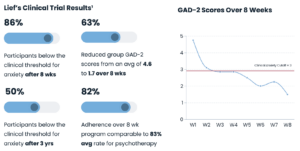
The findings showed that our program, a natural solution for anxiety relief, can help reduce symptoms of anxiety by helping people learn how to use the power of their breath to calm their nervous system. This is not to say that Lief is a replacement for therapy, but rather that there is empirical evidence showing that HRV biofeedback can help people in measurable ways. And it can be paired with something like therapy or medication, or used on its own. Lief is a natural, sustainable tool that’s now available to people struggling with their mental health.
Q. By tracking HRV in real-time, how can people use this information to reduce anxiety, stress, and improve overall health?
By tracking your real-time HRV, you can build awareness about what’s going on in your body. If you think about a stress response, it’s not just mental and emotional. There’s a physiological element to it too, which we can now help people understand by providing them with this biomarker data, heart rate variability. HRV is a proxy for understanding how your nervous system is responding in the moment to something.
For example, how did what you eat for lunch affect you? If you have lower HRV for several hours after eating, what does that tell you about the meal you ate, and how might it motivate you to eat differently in the future? By getting this real-time feedback, Lief is empowering people to understand how the choices that they make on a daily basis affect their nervous system, which in turn affects their mental health.
Q. How does the Lief app work with the device to support the user?
A big part of behavior change is being able to see progress. After all, you can’t improve what you can’t measure. The Lief app enables you to see your data in real-time. You may do this more in the beginning of your Lief journey, when you’re working on building awareness of your patterns. Then over time, you trust your inner perception (a.k.a. interoception) more without looking to the app for confirmation.
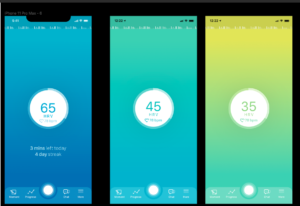
The app shows your real-time HRV data, which changes moment to moment. The app also provides visual guidance when doing Downtime (a.k.a. the personalized HRV biofeedback practice). This visual guidance helps guide your breathing so you can sync your breath rhythm with your heart rate to increase your HRV.
At the end of each practice session, the app shows how much you increased your HRV. This data-driven approach helps people understand the benefits of incorporating HRV biofeedback on a regular basis, motivating them to do it consistently and experience the benefits to their mental health.
Q. Tell me more about how Lief’s HRV biofeedback works?
The key HRV biofeedback exercise is called “Downtime”. HRV biofeedback is an extremely well validated breathing exercise. We didn’t invent this – it’s been around for decades. There is plenty of clinical evidence confirming the positive effects of HRV biofeedback on mental health symptoms like anxiety and depression, as well as things like insomnia, focus, and athletic performance.
On a brass tacks level, HRV biofeedback helps match your exhale with the descending BPM of your heart rate and your inhale with the ascending BPM. As we breathe, that naturally happens. As we exhale, our heart rate naturally slows down, and as we inhale, our heart rate accelerates. However, when we’re in a state of stress or panic, or unaware of how we’re breathing, we can engage in shallow breathing, or we may pause our breathing without even realizing it.

Some people are subconsciously not breathing at a regular cadence when they’re doing things like writing work emails. We’re helping you build that awareness of whether you’re breathing in an irregular way that’s exacerbating your body’s stress response. Then, your Lief provides a real-time intervention, Downtime, where your breath rhythm is guided so you can re-synchronize. This is a durable skill that you can learn and use long-term to help regulate your nervous system.
Q. Beyond mental health, what are some other concerns Lief can help with?
HRV tracking and biofeedback can be useful for numerous things. Anyone who’s interested in things like longevity or increased performance at work or athletically can benefit. Changing the way you breathe can be transformative to your overall health. Most pro athletes already know this.
Other issues, like headaches, migraines, pain management, and gastrointestinal issues are also relevant. Since heart rate variability is a proxy for our nervous system, it has broad application across all health categories because nervous system regulation is foundational to our overall health and well-being.
Q. As a natural solution for anxiety relief, how quickly can people start to see results from Lief – both short term after doing biofeedback exercises and over a longer period of time?
We have empirical evidence from our clinical trial that some people will experience significant benefits in 8 weeks. However, overall, it’s specific to the individual depending on their engagement with the Lief program.
For someone who is very engaged — like doing at least 15 to 20 minutes of Downtime per day, engaging with our mindfulness content, and working with a Lief coach — I’d expect that person is going to see results faster than someone who engages only 1-3 days per week. Similar to physical exercise, the more consistently you’re practicing HRV biofeedback with your Lief, the more quickly you’ll experience the benefits.
A big part of what Lief coaching can help with is accountability. Our coaches help their clients stay motivated and engaged, especially in that early period when they’re building their Lief habit, and then it gets easier and easier to maintain that practice over time.
Q. What types of partners is Lief currently collaborating with, or looking to collaborate with in the future?
Our most common partnerships are with clinicians. In other words, people who are working with patients, whether they are a therapist, primary care provider, psychiatrist, or psychologist. Since Lief is covered by Aetna insurance in California, it’s a great option for patients with that plan. Especially if they’re looking to dip their toes into mental health care, or they’re looking to augment the care that they’re already receiving from a behavioral healthcare provider.
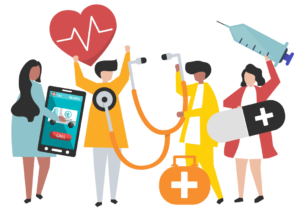
The other group of partners are those that help clients optimize their health and well-being. This includes health coaches, executive leadership coaches, performance coaches, and nutritionists, among others.
We’re open to partnerships with many different types of people; anyone looking for a natural solution for anxiety relief. Recently, I had counselors from colleges reach out, wondering how Lief could help students. We know this is a group under a great deal of stress. Lief can be a great way to help them learn stress management techniques that don’t require them to immediately jump into something expensive and time-consuming like talk therapy, or with potential negative side effects.
Again, this is not to say that Lief is a replacement for, or better than any of those existing standard of care treatments, but rather just a different option. Different things work for different people, and we are a tool for those looking for a natural, sustainable solution for stress management and anxiety.
Q. What more would you want people who have never tried Lief before to know?
The main thing I want people to understand about Lief, other than being a natural, evidence-based solution for anxiety relief, is that our program will empower you to feel better. You may not feel like it right now, but there IS something you can do in the moment to help yourself feel better. You can help yourself feel less on edge, less reactive, less emotionally out of control by learning how to regulate your nervous system using the power of your breath.
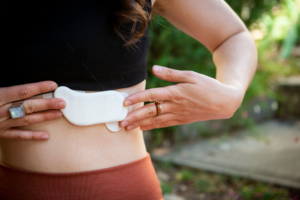
Before I joined Lief, I didn’t know much about heart rate variability. At first, it didn’t make that much sense to me. Like, “Oh, so you’re telling me I’m just going to breathe? That’s something I already do!” I think a lot of people take how they breathe for granted since we do it all the time.
Many of us know to take a deep breath when we need to calm down. Some people may ask, “why do I need technology to help me with something like that?” I would tell those people: It’s one thing to know that you should return to your breath to feel more present and calm. It’s quite another to see your biomarker data in real-time to help reinforce the positive things you’re doing to support your health, or maybe think twice about things you’re doing without much mindfulness, like eating a fatty, high sodium lunch that stresses out your body. It can help you become more mindful about how your behavior impacts your physiology, and then how that affects your mental health.
When we’re not in an optimal physical state, we’re less equipped to manage stressors and challenges as they come our way. Lief helps empower people to make seemingly small choices throughout the day that support their health. Our overall health is a culmination of factors like:” How’s your posture throughout the day?”, “How are you breathing throughout the day, especially when you’re in stressful situations?”, “What are you eating?”, “ How is your sleep hygiene?”, “Are you over-caffeinated?”, “Are you drinking enough water?”, “Are you drinking too much alcohol, especially close to bedtime?”
Ultimately it’s these things that we do all throughout the day, that maybe we’re not thinking about too much, that significantly impact our ability to manage stress and anxiety. With Lief you’re addressing things from the ground level, recognizing how they have a cascading effect on everything else.
So that’s what I would want people to understand. Lief empowers you with your own biomarker data and the skill of HRV biofeedback, so you can have more control over things like your reactivity throughout the day.
I really like what you said about breathing or perhaps drinking coffee being these very basic universal things. I think it is so important to get fundamental things like breathing right because we do it so much and it’s ultimately what sustains us.
That’s exactly right. I couldn’t have said it better myself.


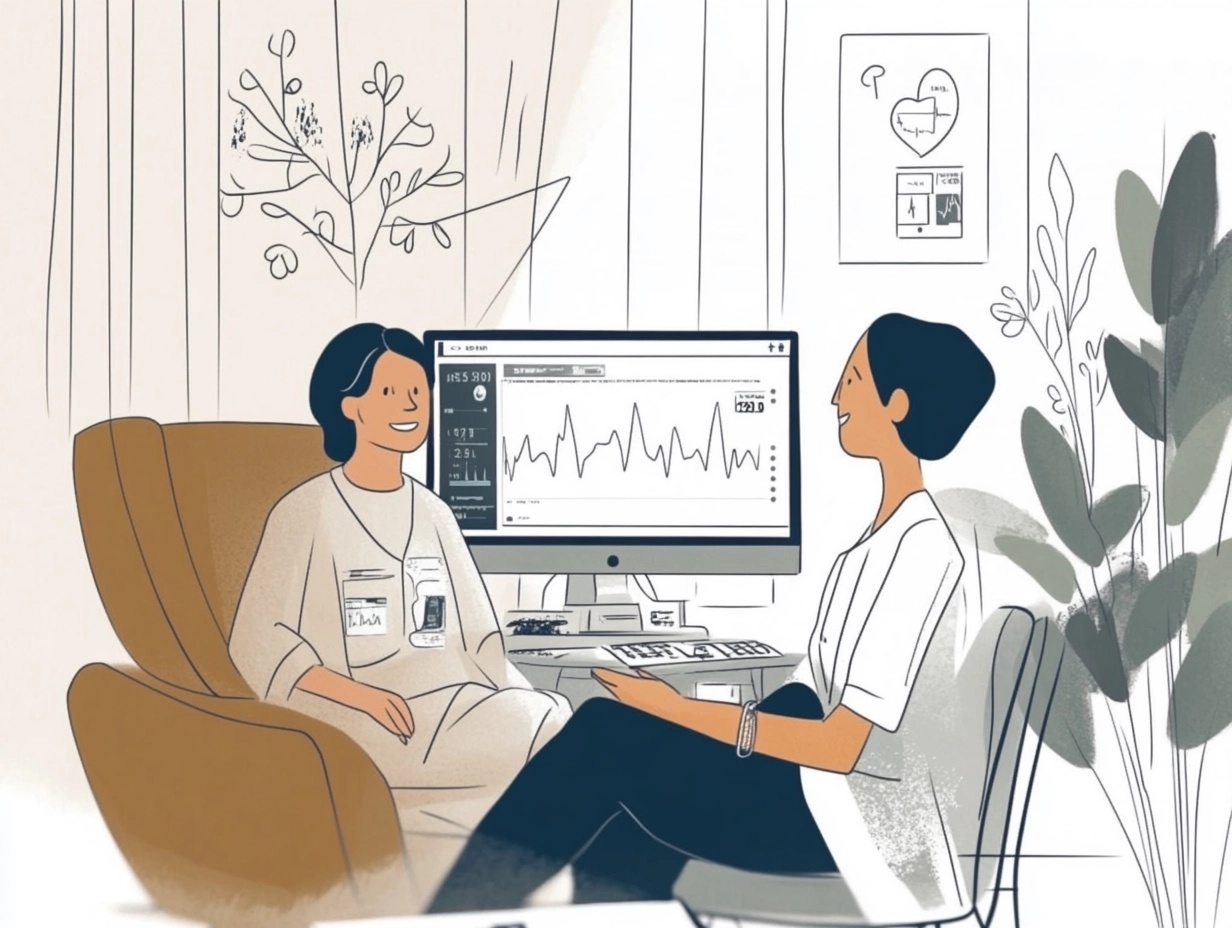


Leave a Reply
You must be logged in to post a comment.